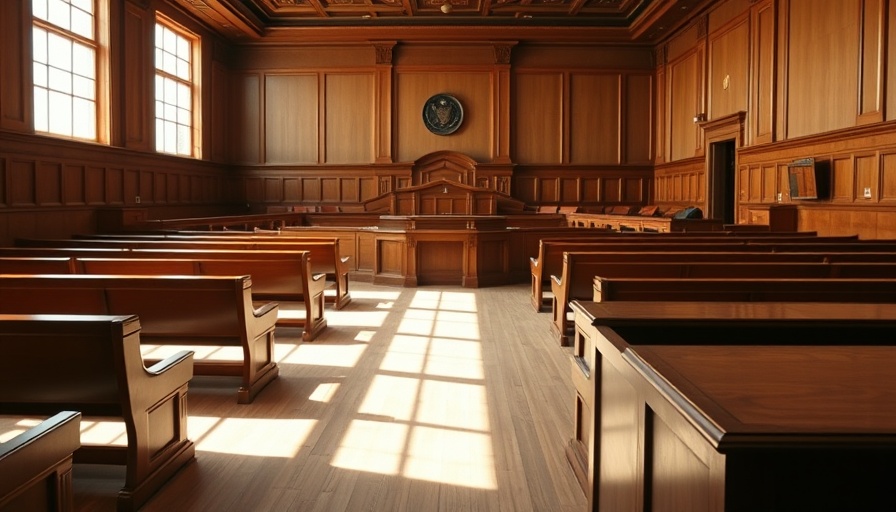
The High-Flying Legal Battle: Boeing's 737 MAX Under Scrutiny
In a pivotal moment for the aerospace industry, Boeing, the aerospace giant, has been ordered to bring its 737 MAX case to trial. This decision follows a series of controversial claims surrounding the aircraft’s safety, which have left both investors and consumers on edge. The trial will delve deep into the alleged negligence that contributed to the tragic crashes involving the 737 MAX, raising significant questions about safety regulations and corporate responsibility.
Unpacking the Case Against Boeing: A Closer Look
The lawsuit centers on claims from families of the victims of two fatal accidents that resulted in a combined loss of 346 lives. Plaintiffs argue that Boeing prioritized profit over safety, knowingly creating a faulty design compounded by inadequate training. Among the key issues at stake is the scrutiny of how Boeing responded to prior complaints and incidents, which raises troubling implications about corporate ethics in the tech-driven aviation world.
Implications for the Tech Industry: Lessons Beyond Aviation
This case serves as a reminder of the power dynamics at play in technology-driven sectors. From disruptions in transportation due to innovative yet risky designs, to navigation through litigious routes, the implications of this trial extend beyond mere aviation. The tech and insurance industries can glean valuable insights on risk management and the critical nature of accountability in innovation. As more industries integrate advanced technologies, understanding the legal precedents set by this case will be crucial.
Future Tech Trends: Safety and Transparency in Aviation
Looking forward, emerging technologies are being positioned to enhance safety measures in aviation, with predictive analytics and real-time data monitoring becoming the new norm. As the tech industry continues to evolve by 2025, insight from the outcome of the Boeing trial will likely influence regulations and sense of transparency in the implementation of advanced technology in critical industries.
The Bigger Picture: Corporate Responsibility in Technology
This trial not only embodies the legal ramifications for Boeing but highlights the broader expectations of corporate responsibility in high-stakes sectors. As emerging technologies disrupt traditional models, companies are being urged to prioritize ethical considerations alongside financial motivations, ensuring that technological advancements do not come at the cost of human safety and accountability.
Charting the Path Ahead: What This Means for Consumers and Stakeholders
As consumers become increasingly aware of these dynamics, the demand for transparency and safety is growing. Stakeholders within the tech and aviation industries must recognize the changing landscape, where consumer perception can significantly impact corporate success. The upcoming trial against Boeing will not only bear consequences for the company but could reshape how technology giants approach innovation and risk moving forward.
As the trial progresses, we must remain engaged and examine the outcomes that could redefine safety standards across industries. Understanding how these developments unfold will serve as a catalyst for informed discussions around technology’s role in safety and corporate ethics.
 Add Row
Add Row  Add
Add 




Write A Comment